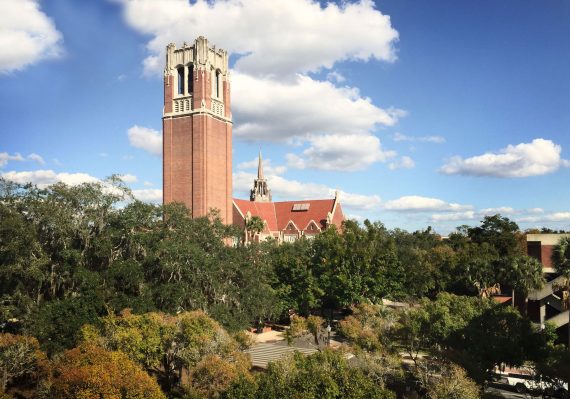Congratulations to the following UF BME faculty on being selected to receive a three-year University of Florida Term Professorship.
• Dr. Mingzhou Ding, Pruitt Family Professor
• Dr. Carlos Rinaldi, Charles A. Stokes Term Professor & senior associate chair
• Dr. Kyle Allen, assistant professor and associate chair for undergraduate studies
This recognition is for excellence in teaching, research and service recommended by their college deans based on nominations from their department chairs and reviewed by the College Honors and Awards Committee.
Ding’s research focuses on applying engineering approaches to understand the neural basis of cognitive functions and their impairments by neurological and psychiatric disorders. Specific areas of interest include the following: 1) multimodal neuroimaging (single unit, multiunit, LFP, EEG, ECOG, and MRI), 2) Granger causality and other novel methods of brain signal analysis, 3) neuronal oscillations, 4) large-scale brain networks, 5) cognitive aging, 6) pain processing, and 7) cognitive impairments in Parkinson’s disease and other disorders.
Rinaldi’s research is focused on advancing the understanding and biomedical applications of suspensions of magnetic nanoparticles. Of particular interest are situations where the particles respond to magnetic fields by rotating, exerting forces/torques on biological structures, or dissipating the energy of the magnetic field in the form of heat. Work in Dr. Rinaldi’s lab spans theoretical and simulation investigation of magnetic nanoparticle response to magnetic fields, nanoparticle synthesis and modification, characterization of nanoparticle physical, chemical and magnetic properties, and testing the interactions of magnetic nanoparticles with cells and tissues.
Allen’s research seeks to improve the evaluation of preclinical osteoarthritis models and improve the preclinical-to-clinical translation of emerging diagnostics and therapeutics for joint diseases. Within this goal, Dr. Allen’s lab is currently developing new behavioral assays that examine symptomology in rodent models of joint disease, novel methods to collect and analyze joint-level molecular changes using magnetic nanoparticles, and innovative replacements of tissue function using tissue engineering and cell therapy.
